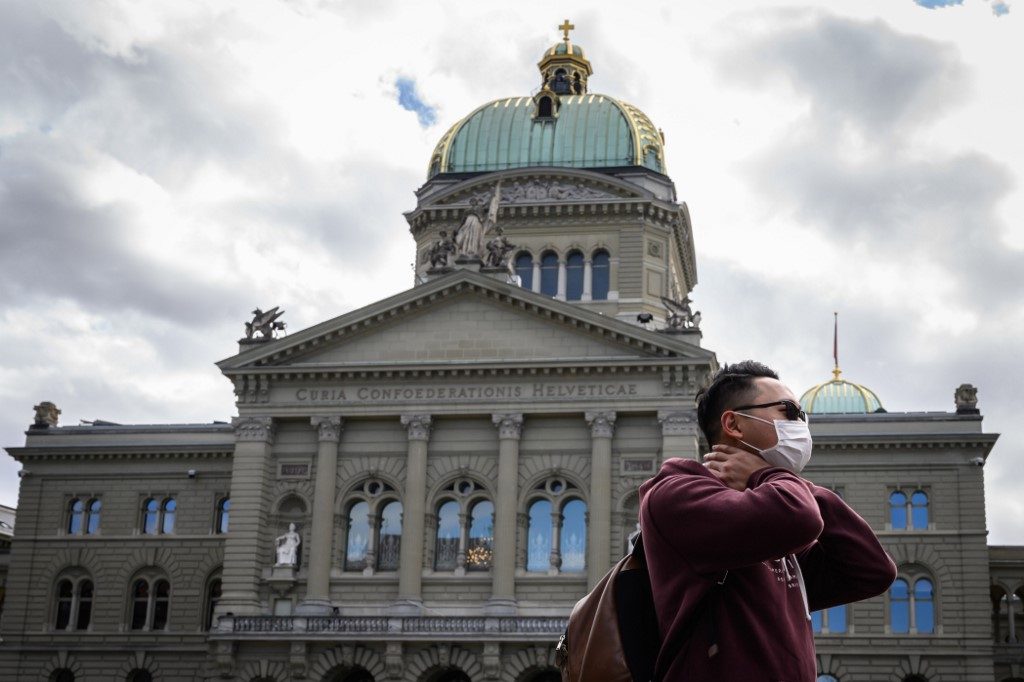SUMMARY
This is AI generated summarization, which may have errors. For context, always refer to the full article.


ZURICH, Switzerland – Switzerland’s central bank warned on Thursday, June 18, that the wealthy Alpine nation would face a “sharp recession” due to the coronavirus crisis, with its economy expected to shrink by around 6% this year.
“This would be the strongest decline since the oil crisis in the 1970s,” the Swiss National Bank (SNB) said in a statement detailing its quarterly monetary policy decisions.
“Most economic indicators have deteriorated drastically in recent months,” the bank said, pointing among other things to a sharp rise in unemployment levels, and “record low” consumer sentiment.
During the 1st quarter of the year, Switzerland already saw its gross domestic product (GDP) shrink 2.6%, the bank said.
The worst economic impact of the measures put in place to halt the spread of COVID-19 had come after that, in April, it added.
“The decline in GDP is therefore likely to be even stronger in the 2nd quarter,” it said.
While economic activity has begun picking up again since late last month, when most restrictions were lifted, the SNB warned that, as in other countries, it was expecting “only a partial recovery for the time being.”
The bank said it was clear that “GDP will not return quickly to its pre-crisis level,” adding that overall, “GDP is likely to contract by around 6% this year.”
But things look brighter after that: the bank said it expected to see an “economic revival” in the 2nd half of the year, which would likely be reflected in “clearly positive growth” next year.
“There is a great deal of uncertainty,” central bank chief Thomas Jordan acknowledged during a press conference in Bern.
“There is the hope that we have passed the worst,” he said, adding though that “a difficult phase of the recovery lies ahead of us.”
The central bank meanwhile decided on Thursday to leave its key rates unchanged, with demand deposits remaining at -0.75%.
It also said that in light of the coronavirus crisis, it was providing the banking system with additional liquidity to help support the supply of credit to the overall economy.
“We have therefore made substantial interventions,” Jordan said, adding that the situation had “eased somewhat.”
The bank also significantly revised down its inflation outlook, amid “significantly weaker” growth prospects and lower oil prices.
It now expects inflation to be -0.7% this year, compared to a previous forecast of -0.3%, and -0.2% next year, compared to 0.3% previously. – Rappler.com
Add a comment
How does this make you feel?
There are no comments yet. Add your comment to start the conversation.